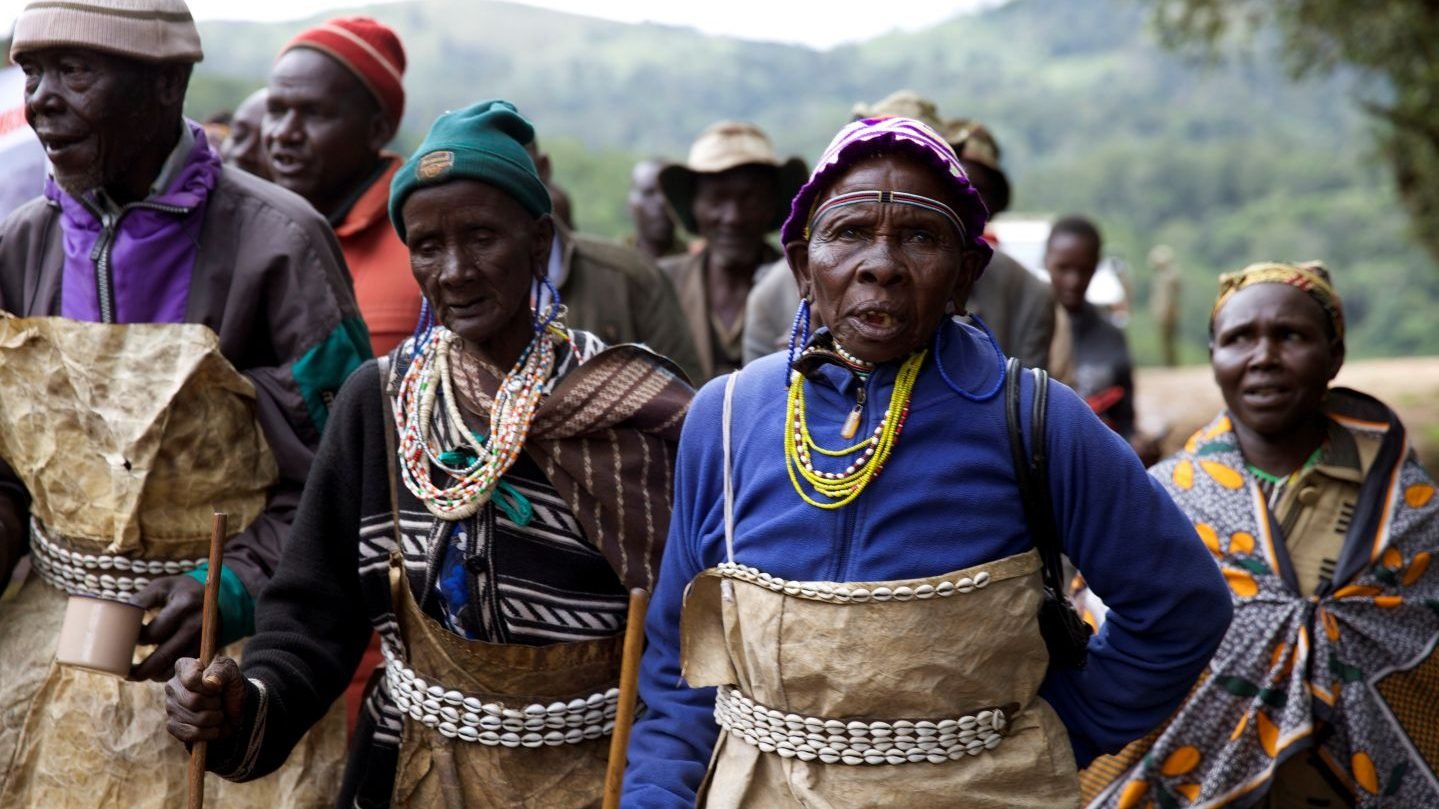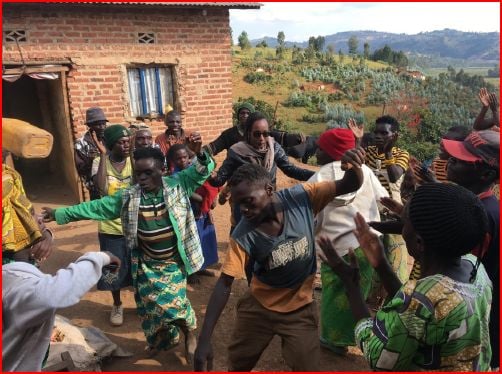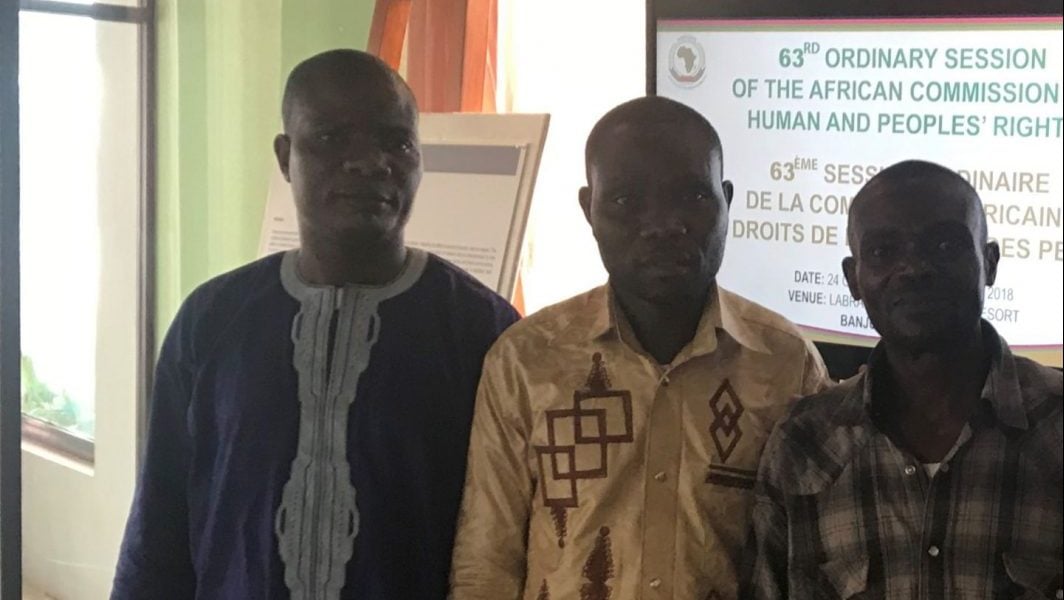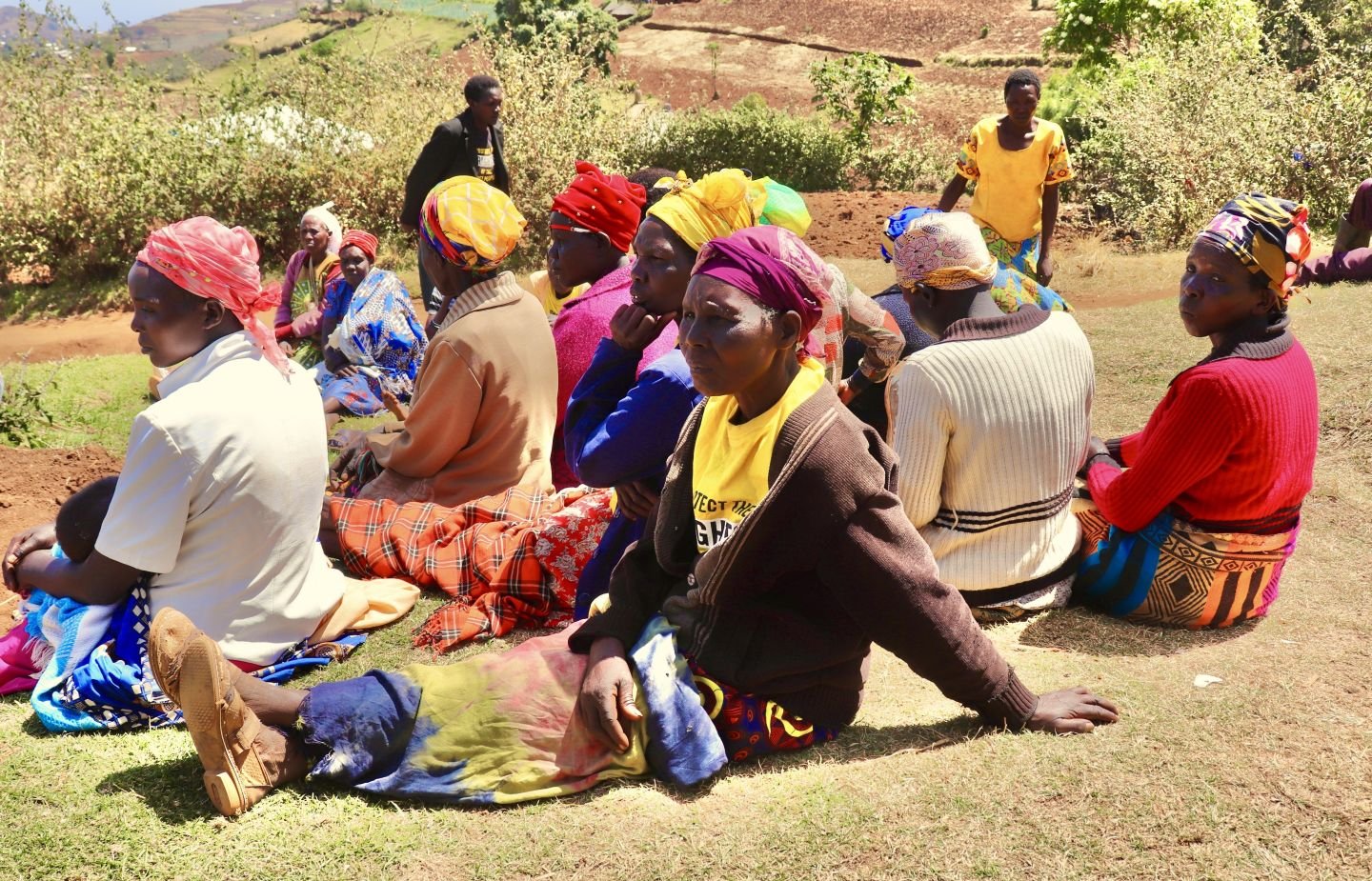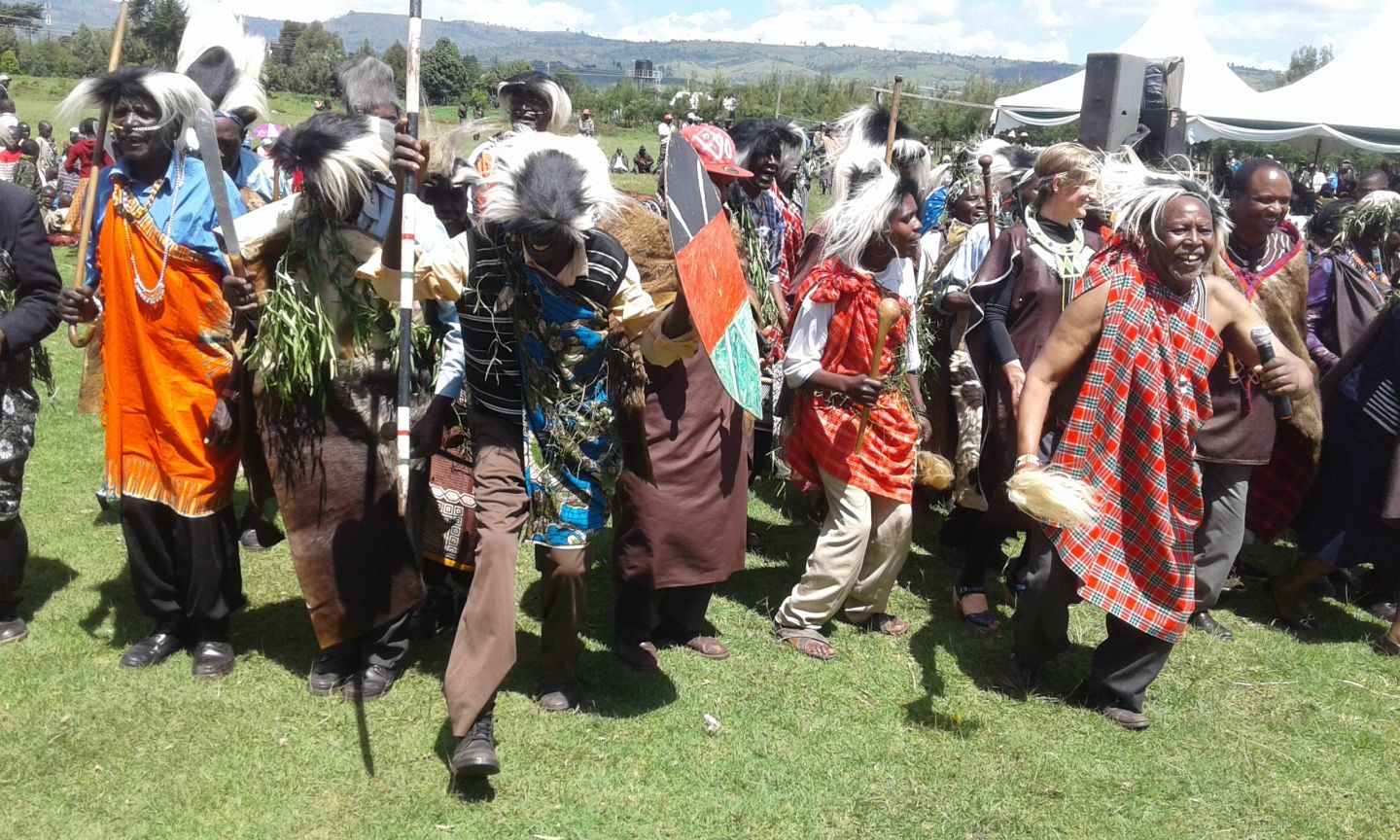
Furthest Behind First (FBF)
Duration: 1 October 2021 – 30 September 2024
Countries: Democratic Republic of Congo, Kenya, Rwanda, Tanzania, Uganda, Zimbabwe
What is this programme about?
The programme, the continuation of ‘Deepening engagement: Achieving rights for Minorities and Indigenous Peoples in Africa‘ (2018-2021), seeks to empower minority and indigenous communities across Central and East Africa so they can challenge human rights abuses, achieve greater inclusion in post-Covid-19 societies, and be recognized for the role they play in environmental protection.
What is the context?
All the countries involved have a significant number of ethnic minorities, and those included in the project are very marginalized and experience persisting discrimination and structural exclusion from existing government programmes. They are left behind in access to equal, quality and accountable service delivery, especially in education, health, water sanitation and food security. Human rights violations related to the exploitation of natural resources and conservation continue to occur on their lands, often leading to conflicts. Consequently, the inability to secure land tenure has grossly affected their capacity to practice their own culture and to progress socio-economically, given that their household incomes derive from their lands.
Their overall lack of access to information on rights and justice channels and the absence of strong community structures impact their capacity to advocate for change in their status. Meanwhile, the lack of political representation and exclusion from decision-making spaces result in unfavourable outcomes for them.
In the Democratic Republic of Congo, Kenya and Uganda, some communities such as the Benet, Ogiek and Endorois have had very supportive court judgements, but there is a lack of state will to implement them. Yet the ruling could provide relief to these communities by changing practices, improving policy and setting the pace for reparation and opportunity for dialogue.
What are we doing?
Through this programme, we are:
- Supporting networks of grassroots paralegal activists to identify and process cases of human rights violations and other abuses experienced by minorities and indigenous peoples.
- Equipping key stakeholders, civil society organisations and activists defending the rights of minorities and indigenous peoples with skills and knowledge, supporting them and those defending them to take measures to protect communities experiencing violations and abuses.
- Equipping key stakeholders, civil society organisations, and activists to identify and address the intersectional discrimination affecting minority and indigenous peoples’ rights and supporting measures to increase the participation of women, persons living with disabilities and LGBTQI persons in governance and strategic planning.
- Improving governance environments and building more equitable societies at both regional and national levels, strengthening the participation of minorities and indigenous peoples in decision-making, focusing on their inclusion in planning for post-Covid-19 recovery, and ensuring that more pre-emptive public health and humanitarian plans address their heightened vulnerability.
- Establishing more sustainable measures, constructive partnerships and dialogues between minorities and indigenous peoples and duty bearers at local, national and regional levels to ensure more inclusive health and education policies that address the needs of minority and indigenous communities most at risk of being left behind.
- Strengthening the relevant capacities of CSOs representing minorities and indigenous peoples, organising inclusive journalist training and creating new opportunities and partnerships with media houses to report on and work with minorities and indigenous peoples and CSOs.
What are we aiming to achieve?
- Increased knowledge of human rights, improved access to justice, and a positive change in governments’ will to respond to issues affecting minority and indigenous communities.
- Increased legal knowledge for communities to demand an end to continued human rights violations, to seek redress, to engage local leadership, to network within the country and beyond to front a collective voice demanding action from the regional and international mechanisms.
- Establish new legal precedents at regional and national levels that enable minorities and indigenous peoples to gain redress and justice for harmful environmental practices and policies and/or the recognition of their rights to land.
- Improved protection and realisation of the rights of minorities and indigenous peoples, subject to or at greatest risk of human rights violations and other abuses in Eastern Africa, as they become more capable of denouncing instances of persecution.
- Greater public solidarity towards the situation of minorities and indigenous peoples built by duty bearers through sustainable and inclusive CSO-led legal, advocacy and media interventions.
- Increased inclusion and resilience of the most marginalized and vulnerable minority and indigenous communities, through improved governance and participation in regional and national development and planning programs, Covid-19 recovery strategies and humanitarian preparation.
- Advanced mapping and documentation of the impact of climate change on minorities and indigenous peoples, enhancing the development and propose of effective mitigation and adaptation strategies, and increasing awareness and solidarity among the general public.
- Reduced negative impact of harmful practices, public policies and acts of environmental degradation in Eastern Africa as they directly affect and threaten the way of life and livelihood of minorities and indigenous peoples, who are the most impacted by climate change.
Who are our partners?
Our partners are:
- Ogiek Peoples Development Program (OPDP) – Ogiek community in Kenya
- Awer Community Conservancy (ACC) – Awer community in Kenya
- Turkana Development Organizations Forum (TuDOF) – Turkana community in Kenya
- Endorois Indigenous Women Empowerment Network (EIWEN) – Endorois community in Kenya
- African International Christian Ministry (AICM) – Batwa community in Uganda
- Benet Lobby Group (BLG) – Benet community in Uganda
- Northern Karamoja Indigenous Minority Group Platform (NKIMGP) – Ngokutio and Ik communities in Uganda
- Maragoli Community Association (MCA) – Maragoli community in Uganda
- Pastoral Women’s Council (PWC) – Maasai community in Tanzania
- Might Society Against Poverty (MSOAPO) – Makonde community in Tanzania
- Hadzabe Survival Council (HSC) – Hadzabe community in Tanzania
- Centre d’Espoir pour les Droits Humains (CEDH) – Batwa and Bambuti communities in the DRC
- Foyer de Développement pour l’Autopromotion des Personnes Indigentes et en Détresse (FDAPID) – Batwa and Bambuti communities in the DRC
- Women’s Organisation for Promoting Unity (WOPU) – Batwa (Historically Marginalised People) community in Rwanda
- African Initiative for Mankind Progress Organization (AIMPO) – Batwa (Historically Marginalised People) community in Rwanda
- Abadasigana – Batwa (Historically Marginalised People) community in Rwanda, focus on Batwa with disabilities
- Katswe Sistahood – Doma community in Zimbabwe
- Tsoro-o-tso San Development Trust (TSDT) – San community in Zimbabwe
Who is funding this programme?
This programme is funded by Irish Aid‘s Civil Society Fund (CSF).
 Ogiek celebrating their victory in Mau Forest, Kenya, May 2018. Credit: Lucy Claridge / MRG.
Ogiek celebrating their victory in Mau Forest, Kenya, May 2018. Credit: Lucy Claridge / MRG.
